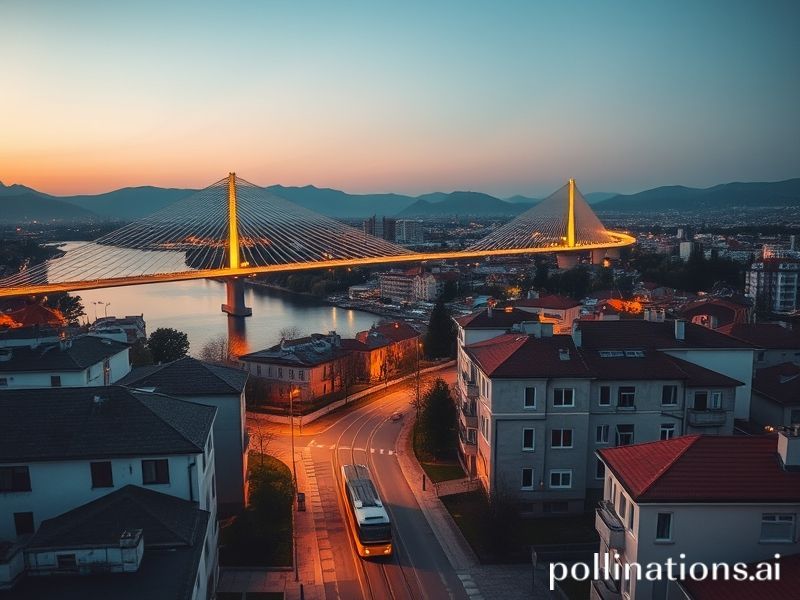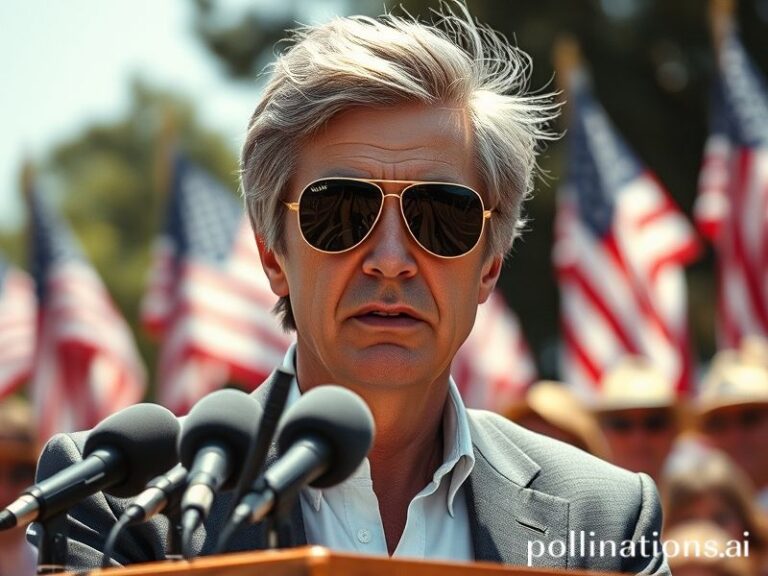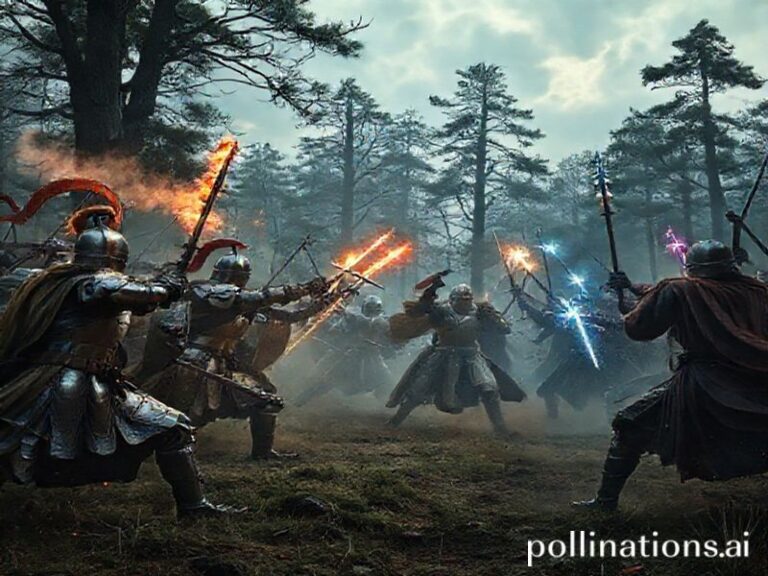Podgorica: The Tiny Capital Where the World’s Chaos Does Donuts
Podgorica—population roughly the same as a mid-tier Premier League stadium on derby day—has quietly become the black-box recorder of 21st-century geopolitics. From the café terraces along the Ribnica, you can watch Chinese cranes assemble a belt-road bridge, sip Italian espresso roasted in Hamburg, and eavesdrop on German tax consultants explaining Montenegrin citizenship-by-investment to Russian crypto-millionaires who’ve just discovered that Cyprus is “over.” The city’s official slogan is “Podgorica: Timeless,” which is either poetic or a cruel joke, depending on how long you’ve been stuck in the single-lane roundabout the locals call “the Carousel of Lost Souls.”
To the wider world, Podgorica is the capital of a country whose name autocorrect still refuses to learn. Yet every global trend eventually washes up here, slightly damp and smelling of rakija. NATO’s newest and smallest member hosts a logistics hub that moves everything from Ukrainian grain to IKEA wardrobes; the EU’s newest disappointment runs a customs scanner that beeps mysteriously whenever a Hungarian truck approaches. Meanwhile, Washington’s latest sanctions list reads like the Montenegrin business directory, proving that even Balkan oligarchs can achieve international brand recognition if they try hard enough and bribe consistently.
Climate change? The Morača river, once a postcard trickle, now floods the city center every spring with the punctuality of a Swiss train, depositing plastic bottles stamped in five alphabets and one Cyrillic font that doesn’t exist on Google. Locals shrug: “At least the water brings us free refrigerators from Albania.” The municipality’s master plan—funded by an Emirati foundation that also builds artificial ski slopes in the desert—promises “resilient waterfront living.” Translation: ground-floor apartments will soon come with complimentary snorkels.
The pandemic, too, left its calling card. Podgorica’s airport became a pop-up hospital where German retirees landed for cut-price hip replacements while Montenegrin nurses queued for Italian work visas. When vaccines arrived, the government held a lottery: win a shot, get a free week at a bankrupt seaside resort. The marketing agency behind the stunt later won a UN award for “innovative crisis communication,” proving that satire is now an export commodity.
Tech utopians should note that the city’s smartest building is the US Embassy—a brutalist bunker wrapped in blast film and facial-recognition cameras that occasionally mistake stray dogs for lobbyists. Inside, interns from Kansas draft cables about “digital transformation” while the municipal Wi-Fi outside collapses every time someone uploads a TikTok of grilled squid. Elon Musk’s Starlink dishes sprout on rooftops like chrome mushrooms, feeding crypto-miners who fled Kazakhstan’s winter blackouts and now complain that Montenegrin electricity is “too socialist.”
Tourism boards insist Podgorica is Europe’s “next Berlin,” which is accurate if you focus on the abandoned factories, the artisanal gin priced in dollars, and the suspicion that everyone interesting left years ago. What remains is a city where the 1990s never quite ended and the 2030s have already arrived, compressed into a single afternoon. You can buy a drone from a street vendor who still keeps a Nokia 3310 in his sock, then watch the drone film an EU delegation planting a tree that will be cut down next week to widen the Chinese highway.
And yet, for all its contradictions, Podgorica functions as a live feed of planet Earth’s anxieties: great-power rivalry, climate roulette, demographic collapse, influencer economics, and the universal human conviction that somewhere else must be better. The city’s gift is to remind you that everywhere else is already here, just smaller and slightly cheaper. When the last cocktail bar closes at 2 a.m., the bartender—degree in molecular biology, currently paid in Bitcoin—locks up and mutters the unofficial national motto: “We survived the Ottomans, we’ll survive the influencers.”
Outside, the Carousel of Lost Souls keeps spinning, headlights tracing lazy circles in the dark, a hypnotic reminder that history isn’t over; it’s simply doing donuts in a Balkan roundabout, waiting for the next GPS update from the future.







